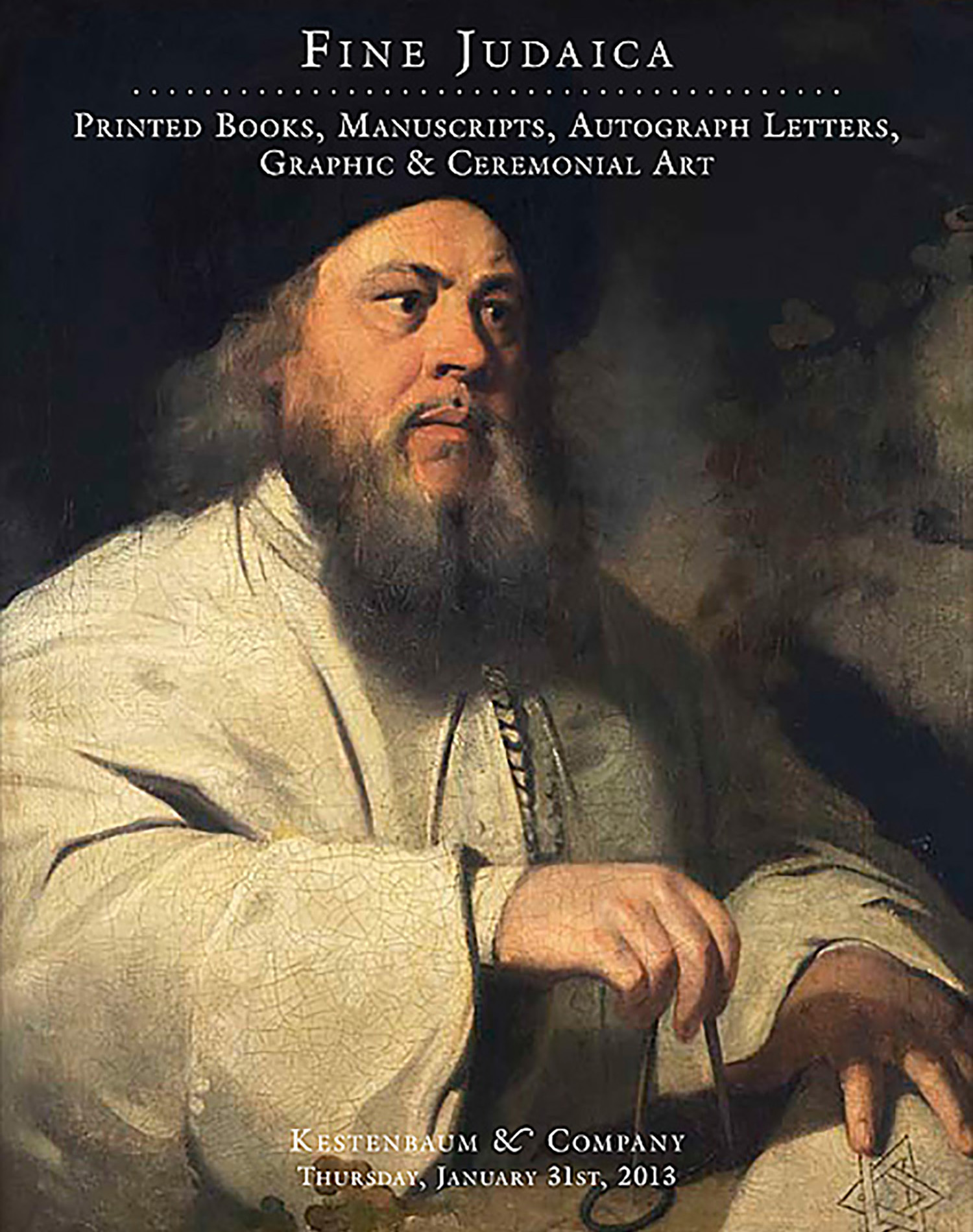(AMERICAN JUDAICA).

AUCTION 57 |
Thursday, January 31st,
2013 at 1:00
Fine Judaica: Printed Books, Manuscripts Autograph Letters, Graphic & Ceremonial Art
Lot 9
(AMERICAN JUDAICA).
Leipzig: Weygandschen Buchhandlung 1783
Est: $4,000 - $6,000
<<American Colonization Proposal, 1783.>>
Leopold Friedrich Guenther von Goeckingk states in the present article to have received a letter from an unnamed Jew containing a proposal to the President of the Continental Congress to permit two thousand Jewish families to immigrate to America and establish there a Jewish colony.
The letter remains an enigma among historians as it is unclear whether it is fictitious or not. Some argue that it represents an actual attempt by German Jews to ameliorate their condition by starting a new life in distant America which promised them greater rights and more opportunities to make a living. One difficulty with this interpretation is that the letter refers to the emigration of 2,000 families, at a time when the total Jewish population of Prussia proper numbered only about 1,600 families. Also, there is neither a record of this letter having been received by any branch of the United States government, nor was there ever any discussion in the Jewish community concerning this colonization proposal. These and other difficulties have led scholars to conclude that the letter is fictitious and that it must be understood within the context of local contemporary debates about emancipation and the Jewish Question. Noting that the United States already “tolerates” Jews, the anonymous author of the letter casts the Jewish immigrants as potential colonists, who, if granted the proper privileges, would help promote American wealth and prosperity. Understood as such, the letter was thus a political plea to the German public. Presenting Jews as desirable colonists for the United States had the obvious function of highlighting their utility as domestic resources that the German states could conceivably lose to the United States. So rather than continue the status quo that promised to propel Prussian Jews to more promising distant shores, by emancipating its Jews Prussia would be setting up a local colony that would both produce the necessary “revolution” in the Jews’ “entire way of thinking and living” and at the same time contribute to Prussian internal colonial expansion.
Leopold Friedrich Guenther von Goeckingk (1748-1828), a Prussian official serving in Ellrich, was a well known sentimental poet and writer. He frequently contributed to the Deutsches Museum, a literary journal that appeared between 1776 and 1788. He was a close friend of Friedrich Nicolai, the publisher of Dohm’s emancipation treatise, and a familiar face in the circles of Berlin intellectuals in which Dohm traveled.
<< The first printed attempt to engineer the migration of Jews from Europe to the United States.>>
See J. Hess, Jonathan: Germans, Jews, and the Claims of Modernity. (2002) p. 44.
<<The present (complete) volume of Deutsches Museum contains two additional articles of Jewish interest:>>
1) Anonymous (i.e., Friedrich Heinrich Jacobi), Gedanken Verschiedener bei Gelegenheit einer merckwuerdigen Schrift. [“Thoughts on the Occasion of a Strange Publication.”] January 1783, pp. 3-9.
This article was published as part of the struggle between Jacobi (1743-1819), a German Jewish philosopher, and Moses Mendelssohn over who would represent Lessing’s philosophical legacy.
2) Proben einer neuen Uebersetzung der Psalmen von Moses Mendelssohn” (“Samples of a New Translation of the Psalms by Moses Mendelssohn.”) March 1783, pp. 228-239.
